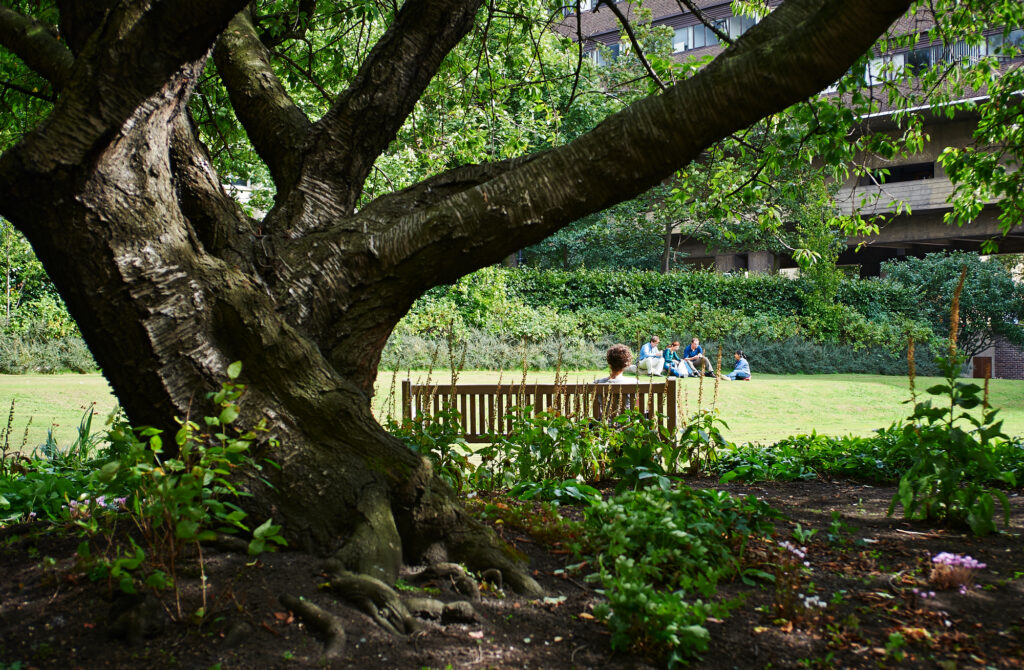This week is national Hedgehog Awareness Week – a celebration of the role these wonderful animals play in our endemic ecosystems, and a call to action to help protect them from the threats they face. According to the Mammal Society, the Western European Hedgehog has been vulnerable to extinction in Britain since 2020. The species’ continual decline in Britain has been suffered despite its numbers remaining stable in much of the rest of Europe. So, what can we, both as individuals and as a University, do to support hedgehogs at home and on campus to restore them to the healthiness of their European cousins?

The challenges
Hedgehog numbers in rural areas have been dropping for many years and, according to the State of Britain’s Hedgehogs 2022 report, have declined by 30-75% since 2000, depending on the area of the UK. Population decline in urban areas is slower – likely aided by awareness raising campaigns by organisations such as the People’s Trust for Endangered Species and the British Hedgehog Preservation Society (BHPS), but hedgehogs still face many challenges here, including:
- Increasing traffic volume making streets more perilous,
- Habitat loss and fragmentation as hedges and verges are lost or overly mown and gardens are cut off from one another by fences with no paths through,
- Disruptions to Autumn nest building due to garden clearing and bonfire night celebrations,
- The continued use of garden pesticides and poisons.
How we can help
As part of our biodiversity remit, we in the Sustainability Team have been working to ensure that our campus is as friendly as possible to a variety of species, including hedgehogs, and we’ve been running awareness raising campaigns for several years now. Accordingly, the University’s Sustainable Construction Specification stipulates that all new projects must create a biodiversity net gain and our colleagues in the Grounds Team work hard all year round to create quality green spaces across our campus. In addition to this, we’ve collaborated with the School of Natural and Environmental Sciences to host a number of fundraising events for hedgehog conservation which have raised hundreds of pounds!
Hedgehogs don’t need too much to thrive in our urban environments and even minor interventions made by individuals in their gardens or allotments can make a big difference in improving and expanding habitats. The Hedgehog Street campaign recommends a range of actions you can take to support your local hedgehog populations, including:
- Creating small holes in garden fences to safely connect gardens,
- Leaving a corner of your garden or allotment wild and undisturbed to provide hiding places,
- Clearing away any old gardening netting and litter from green spaces,
- Avoiding chemicals (such as pesticides, poisons, and weedkillers),
- Becoming a Hedgehog champion through Hedgehog Street.
More ideas can be found here and you can also learn how to build a Hedgehog house with this guide by the Woodland Trust. If you find a hedgehog that is in distress or may have been orphaned, please contact the BHPS who can provide guidance and a list of independent hedgehog rescue centres across the UK.

Thank you for reading and taking the time to consider biodiversity in our urban environment! If you’re lucky enough to have a garden or allotment please do consider how you can make it more friendly for a variety of plant and animal species. Plus, if you’re interested in learning more about biodiversity on campus and beyond, have a look at our website and our blogs on biodiversity, bees, the UN Biodiversity Conference, and sustainable agriculture!
